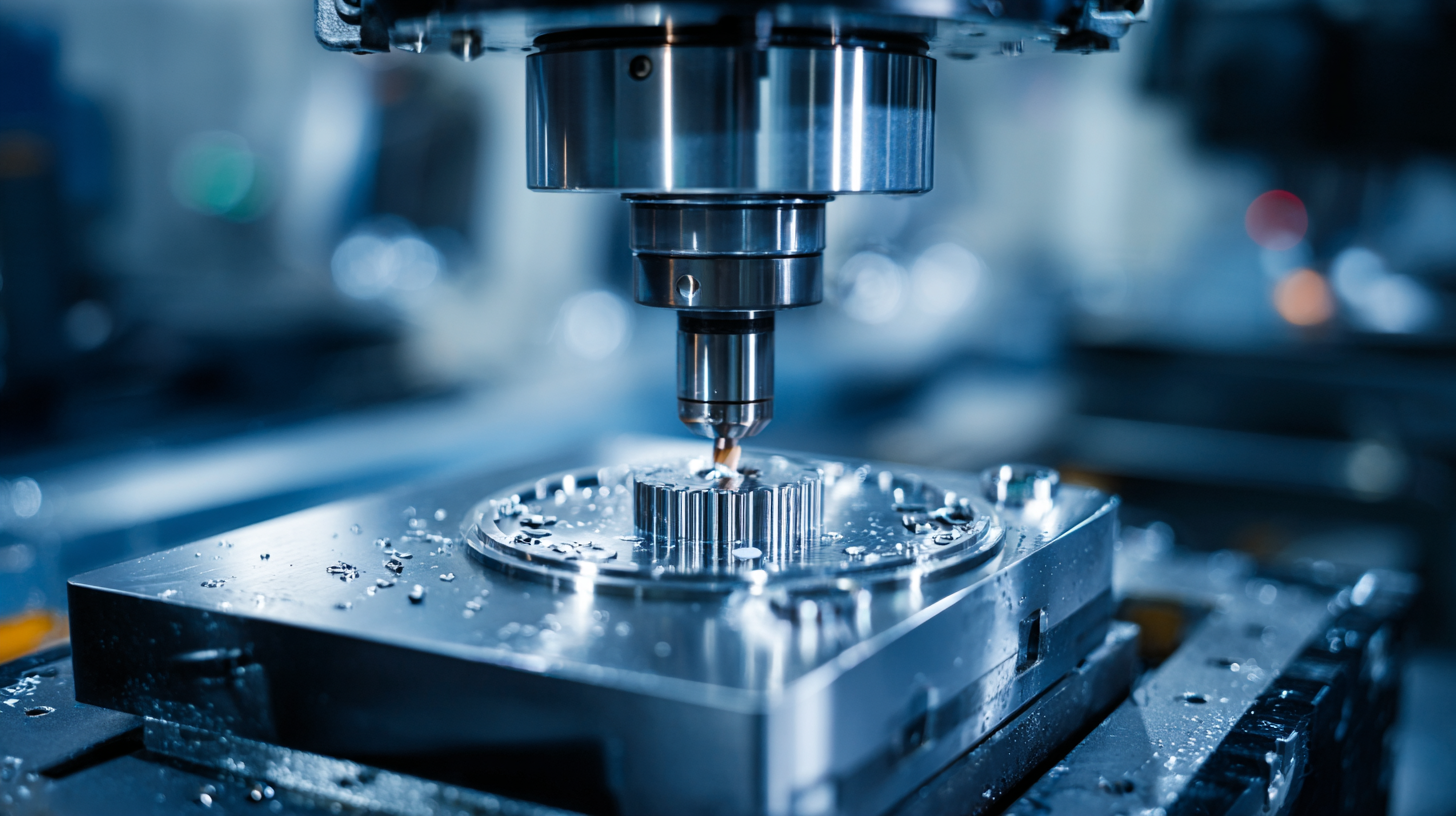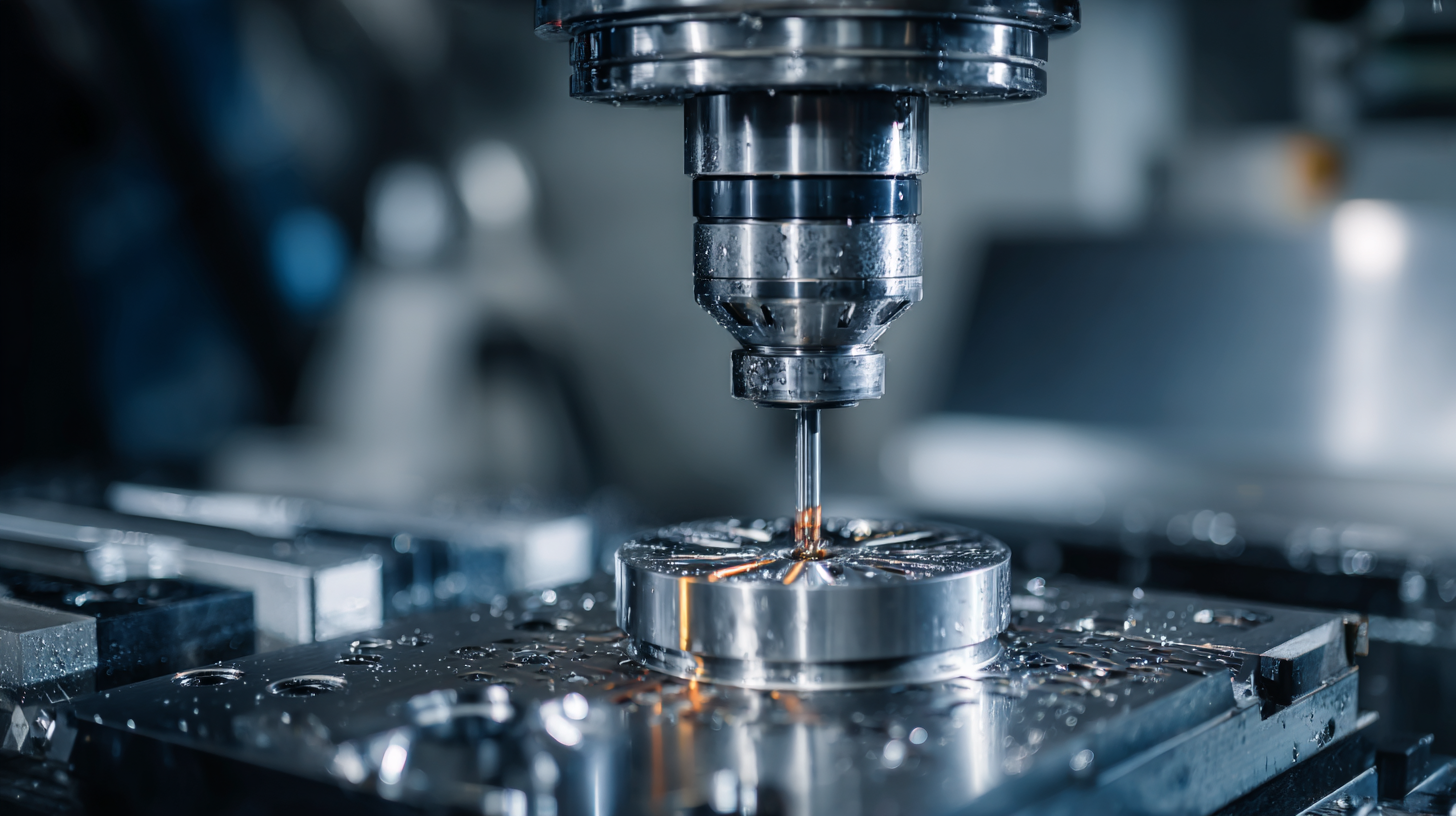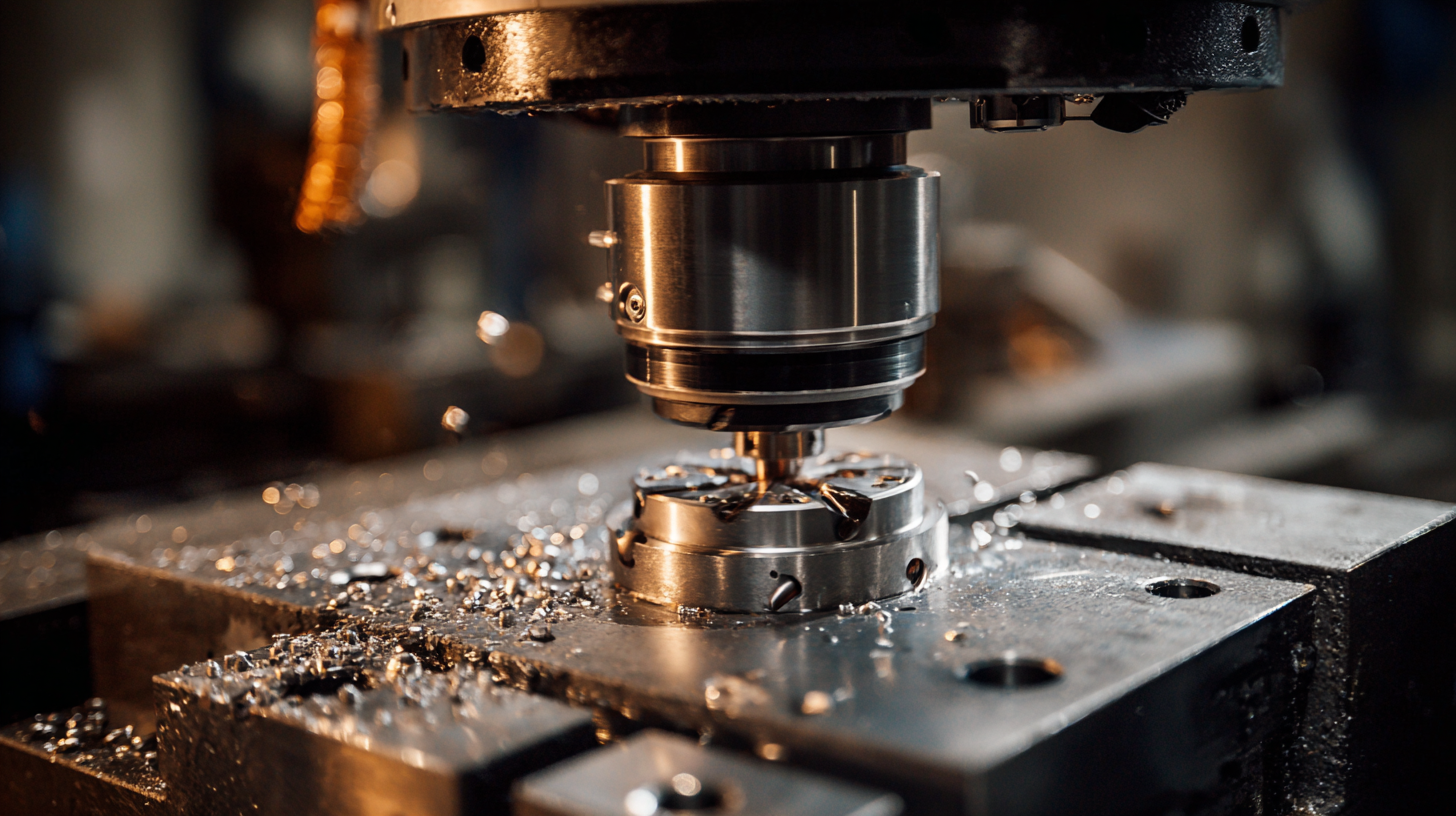In today's competitive manufacturing landscape, achieving high precision in CNC machining is paramount for global buyers seeking to enhance their production capabilities. According to a recent report by MarketsandMarkets, the global CNC machine market is projected to reach USD 100 billion by 2025, reflecting a compound annual growth rate (CAGR) of 6.5% from 2020. This growth underscores the increasing demand for advanced machining solutions, emphasizing the need for manufacturers to invest in the best precision CNC technologies. As precision becomes a hallmark of efficiency and quality in manufacturing, understanding the alternatives available in the market can significantly impact procurement decisions, enabling companies to tailor solutions that meet their unique operational requirements while optimizing productivity.

Understanding CNC precision is crucial for global buyers striving to enhance their manufacturing capabilities. Factors such as machine rigidity, tooling quality, and control systems significantly influence CNC performance. According to a report by the International Federation of Robotics, the precision of CNC machines can vary significantly, with high-quality systems achieving tolerances of up to ±0.001 mm, while lower-end models may fall short at ±0.1 mm. This stark difference underlines the importance of selecting the right CNC system tailored to specific production requirements.
Another essential factor in CNC precision is the material being machined. Studies from the American Society of Mechanical Engineers indicate that materials such as titanium and steel can pose unique challenges due to their hardness and resistance to wear. As a result, choosing appropriate cutting tools and parameters is vital. For instance, diamond-coated tools have shown to increase machining accuracy by 30% when working with tough materials compared to traditional carbide tools. These insights not only help buyers understand the critical variables that impact CNC precision but also assist them in making well-informed purchasing decisions that align with their operational goals.
This chart displays various performance metrics that are crucial for evaluating precision CNC machines, including speed, accuracy, stability, maintenance cost, and user satisfaction. Each factor contributes significantly to the overall performance and effectiveness of CNC machines in manufacturing processes.
When selecting a high-quality precision CNC machine, several key features stand out that can significantly enhance productivity and accuracy in manufacturing processes. First and foremost, the machine's cutting accuracy is paramount. Look for models that offer tight tolerances, typically within +/- 0.001 inches, which ensures that each component produced meets stringent specifications. Furthermore, consider the machine's rigidity and stability, as a robust build minimizes vibrations during operation, leading to cleaner cuts and a longer lifespan for both the machine and its tools.

Another critical aspect is the machine's versatility. The best precision CNC machines provide a range of functionalities, enabling users to perform various machining tasks from milling to drilling and even complex 3D contouring. An intuitive control interface is essential as well; it allows operators to program and adjust settings with ease, optimizing workflow and reducing downtime. Additionally, look for machines equipped with advanced automation features, such as tool changers and loading systems, which can significantly increase efficiency and reduce human error in manufacturing. By prioritizing these features, global buyers can ensure that they invest in a CNC machine that meets their precision needs and supports their business growth.
Maintaining precision in CNC machining is critical for the production of high-quality components. One of the essential tips is regular maintenance of your CNC machine. This includes routine checks on the machine’s calibration, ensuring that tools are sharp, and replacing any worn-out parts. A well-maintained CNC machine will run more accurately, reducing errors and ensuring that even the most intricate designs come to life with precision.
In addition to maintenance, proper programming and tool selection play crucial roles in achieving machining accuracy. Using the right type of tools for specific materials can greatly affect the precision of the final product. Employing advanced CAM software helps streamline the programming process, allowing for more precise cuts and enhancing overall machining efficiency. Ultimately, fostering a culture of precision within your machining team through training and best practices can lead to significant improvements in output quality and consistency.
The CNC (Computer Numerical Control) machine market is experiencing significant growth, driven by the increasing demand for precision in various industries. Each sector has unique requirements, making the choice of CNC machinery crucial for operational efficiency. Whether in aerospace, automotive, or medical industries, the best precision CNC machines are tailored to meet specific regulations, enhance productivity, and offer sustainability in manufacturing processes. A comparative analysis of these machines highlights their capabilities in handling diverse materials, from advanced alloys to conventional metals, ensuring optimal performance under different machining conditions.
Recent advancements in technology have also focused on integrating smart solutions into CNC systems. For instance, remote diagnosis and fault detection technologies enhance the reliability of CNC machines, allowing manufacturers to maintain operational continuity with minimal downtime. Additionally, sustainable machining practices are emerging, utilizing advanced cooling and lubrication methods to reduce environmental impact while ensuring high precision and safety. As industries evolve, staying informed about the latest trends and machine capabilities allows global buyers to make educated decisions, ensuring they invest in machinery that not only meets their immediate needs but also supports long-term sustainability goals.

When selecting the right CNC machine for your precision needs, understanding the specific requirements of your application is crucial. The rapid expansion of the CNC machine market, projected to grow significantly from $101.2 billion in 2025 to $195.59 billion by 2032, underscores the increasing demand for precision manufacturing across various industries. Buyers must consider factors such as accuracy, speed, and versatility when choosing a machine that aligns with their production goals.
In addition to the technical specifications, it is essential to evaluate the types of materials you will be working with. Different CNC machines excel with various materials, whether it's metal, wood, or composites. Moreover, advancements in CNC technology, like automation and real-time tracking systems, are enhancing the efficiency and ease of operations. By thoroughly assessing your production needs and staying informed about the latest innovations, you can confidently choose the best CNC machine to achieve the precision and quality required for your projects.
